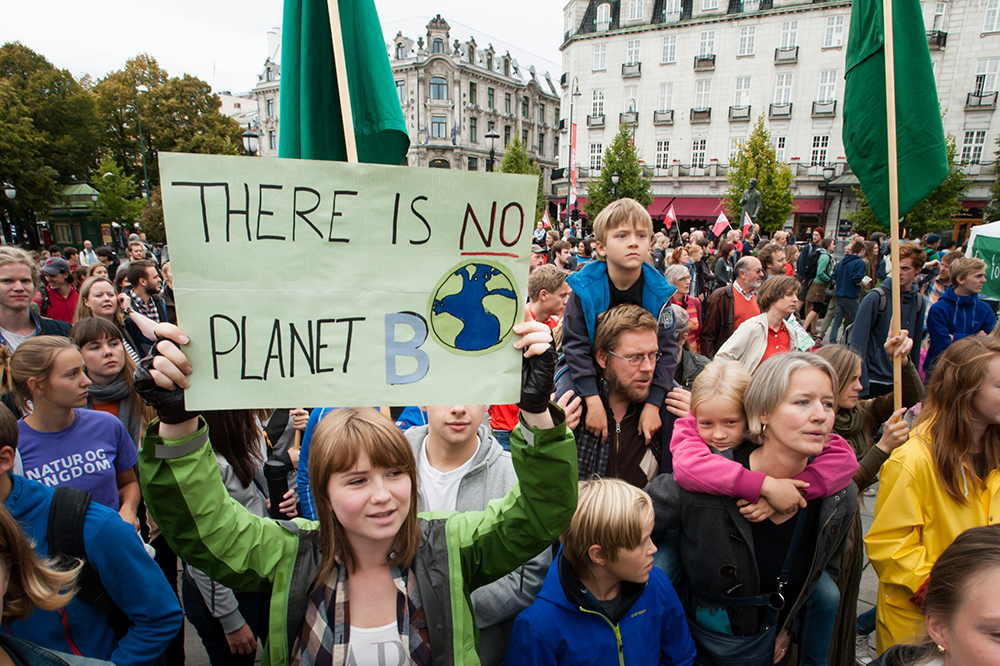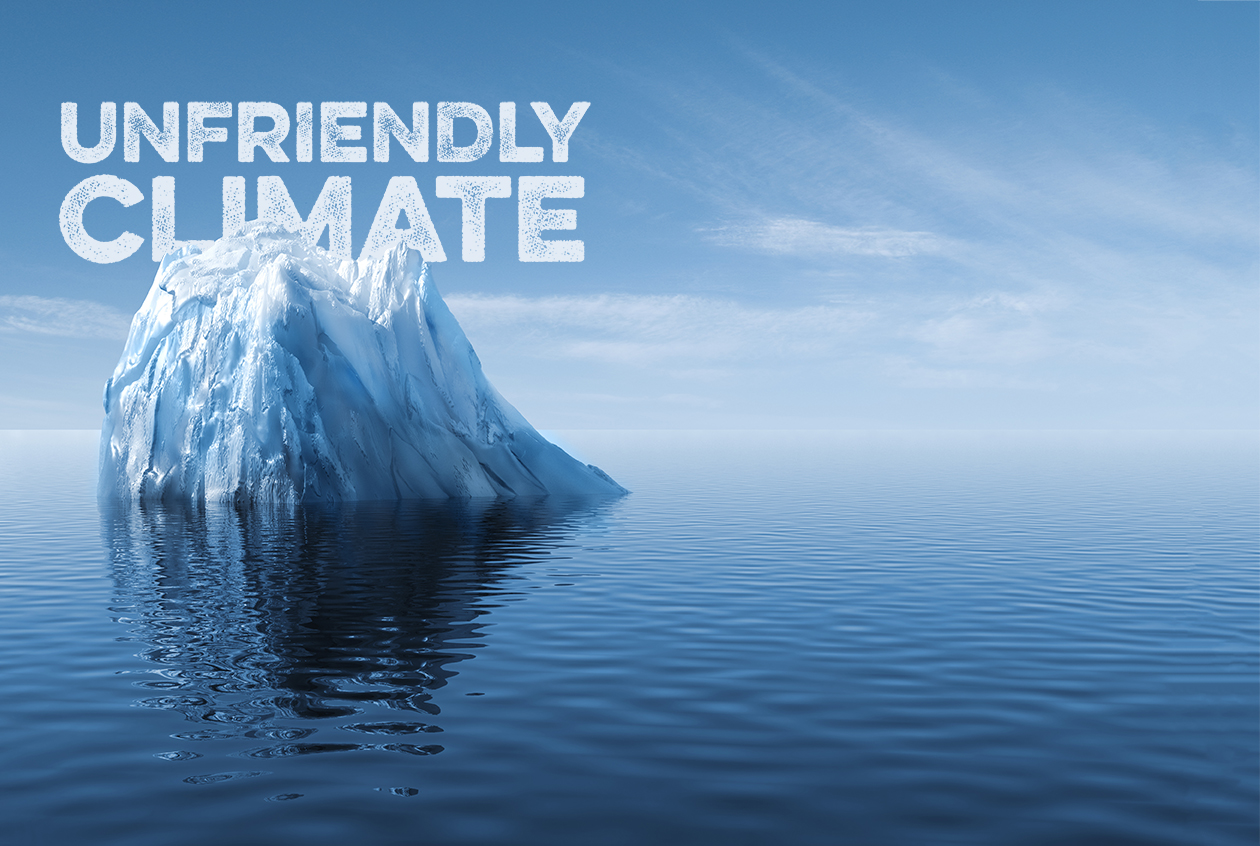Politics, the Environment and the Search for Truth
by Remi Escudie
In response to the withdrawal of the United States from the Paris Climate Agreement, President of France Emmanuel Macron urged American entrepreneurs, scientists and environmentally-conscious citizens to utilize his support: “…they will find in France a second homeland. I call on them; come and work here with us, to work together on concrete solutions for our climate, our environment. I can assure you France will not give up the fight.”
The international call for action on climate change is concise; with 195 signatories, the U.S. will become the third country in the world – alongside Nicaragua and Syria – to withhold from the agreement. This move exemplifies a perversion of the global consensuses on climate change that has ignited the environmental community.
How can a country on the cutting edge of technology and scientific research dismiss a truth widely agreed upon by the scientific community? This shift is largely influenced by societal resistance to implied “scientism,” the notion that natural scientific methods are the exclusive composition of effective decision making; scientism implies an over-extension of scientific influence at the expense of other philosophical, logical and socioeconomic methods of action.
In an article for Psychology Today, former president of the American Humanist Association David Niose said, “What Americans rarely acknowledge is that many of their social problems are rooted in the rejection of critical thinking or, conversely, the glorification of the emotional and irrational.” It would be unjust to construe all Americans in this way, but a wave of anti-intellectualism is rising in this country, and the scientific community is partially at fault. While it is the responsibility of the scientific community to conduct research and form the consensuses that help promote effective decision making, it has also fallen upon this community to convey their results to policy makers and the public; this results in tension between scientific results and their application beyond epistemological uses.
“The key to inciting the revolution is not for someone to do everything, but for everyone to do something. These small steps may not directly cause policy change, but they will influence societal practices and morals that will ultimately result in a political shift of priorities. “The people that care about money, building and fracking, they care enough to do something about it,” said Garrison. “We have to show them we care enough to fight for what we believe in as well.”
Dr. James “Jack” Justus, professor of environmental ethics at Florida State University, understands the disconnect between the scientific community and our society’s elected decision makers. “There is a step beyond research that falls upon academics, which is to speak truth to power,” said Justus. “Academics, however, aren’t the most effective at responding to power, because often they don’t fully understand politics.” The conveyance of truth to politicians falls upon the researchers themselves, professionals who seek to practice science, not lobby for public policy. To Justus, there arises a need for another party, one that can take the complicated findings of academics, make them more digestible and relay them in ways applicable to people outside of academia. “I think there should be more individuals like popular science writers,” said Justus. “There is value in taking cutting edge scientific results and making it engaging and understandable to the average citizen – it’s a large and fruitful domain.”
While there are mainstream thinkers that popularize complicated scientific concepts – think Bill Nye or Neil DeGrasse Tyson – the field is far from saturated. These figures may play an important role in educating the public, but they find conflict when extending their teachings to policy-influencing topics. Bill Nye’s Netflix series Bill Nye Saves the World, for instance, has received significant backlash for promoting what many believe to be a heavily liberal agenda. While it is apparent that many scientific findings align with liberal views – notably environmental conservation – it is often unclear where science ends and politics begin.
This conflict is exemplified by the disadvantage ecologists face on the political stage: it is difficult to convey the environmental worth of things in terms that can effectively weigh against anthropocentric interests. “If you have an interest and there is a lot of economic value involved and then what you bring to the table as opposition is some metaphysics that looks like its not empirically verifiable, well they you’re not going to make a compelling argument,” said Justus. “The interests that are easily quantifiable and easily serve powerful agents are going to win.”
This problem is often seen in the clash of ecological and economic interests. While saving a species or a landform clearly has value to many Americans, this value has trouble competing with the easily quantifiable, monetary arguments of economic interests. Human society boils most decisions and processes down to numerical values, so it is only natural that monetary arguments hold more weight than non-numerical arguments of equal value.
The rebirth of the movement
As federal priorities shift away from conservation and ecological concerns, how has the role of the environmentalist changed? Samantha Garrison, president of the Environmental Service Program at Florida State University, thinks the environmentalist’s fight has not changed – it has been reborn. “President Obama wasn’t perfect, but he did good things and environmental citizens were comfortable with his policies and motivations,” said Garrison. “But now, with a President that denies climate change, a fire has been ignited throughout the environmental community.”
The environmental revolution has experienced phases, with the founding of the Sierra Club in 1892, to the hippie/counterculture movement of the 1960’s, to the green movement of the 1990’s; with the uproar caused by current environmental trends, it is a safe to assume that we are entering the next phase of the revolution. The recent March for Science illustrates the disdain for the demonization of “scientism” as it is portrayed in media, and the concerned masses have begun to rise up like they have in the past. “’One of the biggest environmental revolutions were going to have is in the next 10 years,” said Garrison. “The political climate is getting hotter; that’s how suffrage happened, that’s how civil rights happened – the people stood up.” To Garrison, the job of conveying truth to power falls upon the citizens. The most direct path to inciting political change is to reach out to local politicians and convey worries or concerns about environmentally deleterious policy.
H.R. 621, sponsored by House Rep. Jason Chaffetz of Utah, calls for “disposal by competitive sale” of federal lands in 10 western states, including Oregon, Utah and Wyoming – states home to some of the most impressive natural formations and geology in the country. “Some representatives see this land as disposable, but it is home to numerous ecosystems and wildlife that thrive there,” said Garrison. “These officials represent us, so if we think that land is important, it is our duty to contact them and tell them to vote ‘no’ on this bill.”
This sort of action only takes hold when it is practiced in unison by environmentally-conscious citizens across the country. This phenomenon is not easy to coordinate, in part, because current federal priorities make fighting for conservation policy seem like an uphill battle. The spark ignited in the environmentalist community is challenged by a disheartened spirit – our country’s agents of change seem so formidable and complex that individual action can feel pointless. The key to overcoming this fabricated reality is realizing that individual action inspires action in others, and that we must be content with incremental change.
Elizabeth Swiman, director of Sustainable Campus – a program that promotes sustainable living and conservation at Florida State’s University – spends her time inspiring students to live out environmentalism in their daily lives. “Incremental change is where you’re going to see the biggest results, because working on local communities brings the results right back to you,” said Swiman. “Is it going to tackle climate change? Maybe not immediately, but it is the individual parts that make up the whole of the movement.”
The environmental revolution can’t start from the top down, it must originate in the lives of the people that comprise it. The key to inspiring this lifestyle change in others is to inspire it in yourself first – only once you live it can you pass it along to the next person. “It’s this big, beautiful idea: we have to save the planet. Yes, we do, but first we need to do the tiny things that will help us get there,” said Swiman. “There are a million niches to fill – plant a tree, go to a protest, call a representative – find a niche you are comfortable with and stick to it.”
The key to inciting the revolution is not for someone to do everything, but for everyone to do something. These small steps may not directly cause policy change, but they will influence societal practices and morals that will ultimately result in a political shift of priorities. “The people that care about money, building and fracking, they care enough to do something about it,” said Garrison. “We have to show them we care enough to fight for what we believe in as well.”

Effective argumentation and the search for truth
When transitioning from homegrown activism to the political stage, effective scientific argumentation is key. When posed against economic interests, interests that are present in the daily life of the average citizen, it is easy to see how the importance of environmental issues can be understated. American society tends to think in terms of short-term gratification and the immediate impacts of policy, often at the expense of long-term outcomes that can be of equal – or greater – economic and social importance. This is where the scientific community is struggling. According to Justus, narrowly anthropocentric arguments should be most palatable to our society. “It doesn’t look like there’s going to be a quick fix to save South Florida or the receding coastlines around the world,” said Justus. “So pointing to an immediate, indisputable factor like that should raise people’s concerns about their own welfare, as well as that of their kids and grandkids.”
The problem is that these concerns are too far removed to carry weight with many citizens; it has become commonplace for society to push the burden of change onto others, creating an endless cycle of avoided responsibility to problems that are inconvenient to tackle. In the process of this inaction, it becomes convenient to misconstrue science as a political entity. This obscures the real mission of science – to methodologically search for the truth. The blatant disregard for widely understood truths, like the role of human activity in climate change, will only damage society in the long term.
“It is essential to back any ethical claim with a justification, and if we lose focus on giving those justifications, that may foreshadow some dark times,” said Justus. “If people aren’t operating according to facts and reasons, then what is the alternative?” When factual justifications cease to influence decision making, it leaves room for emotion and short-term goals to affect change. When environmentally conscious citizens seek to convey their ideas effectively, it becomes tempting to succumb to emotive and sensationalist argumentation – this shift, however, completely undermines the search for truth that science is built upon.
“Academics should make more of an effort to do things that are more accessible and digestible to more people, but that should not come at the expense of the search for truth,” said Justus. “There are objective standards for assessing whether something is sufficiently supported by the data, and we have a responsibility to not lose our standards.”
As the political climate changes and decision-making argumentation seems to only be effective when driven by emotion and short-term gain, it remains the burden of the scientific community, and all environmentally conscious citizens, to uphold the stringent standards of truth that characterizes the sciences. It is becoming increasingly important to inspire compassionate understanding in others through thoughtful dialogue, while avoiding the superiority complex that distances the academic community from much of American society. The search for truth will only be upheld when science engages the opposition with respect, rather than demonizing it for its opposing political agenda.
“Bring people outside, help them understand the beauty of nature and what is at stake,” said Garrison. “The more you understand, the more you care.” It is up to us to inspire this understanding in our fellow Americans.











